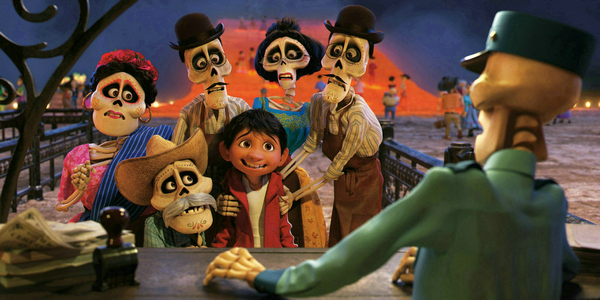 |
|
A scene from Coco, a Pixar animated feature inspired from the Day of the Dead. [Photo/Douban.com] |
Like in many other cultures, death, to some extent, is a taboo in Chinese culture that can easily stir up people's fears.
But for Mexicans, death is just as worth celebrating as life. The Day of the Dead (Día de Muertos) is a Mexican festival that celebrates the temporary return of the dead to Earth with food, music, dance, and parades.
Under the auspices of the Mexican embassy in China, a medley of celebrations, including art exhibits, film screenings and markets, will grace major Chinese cities over the upcoming weekend to mark this year's Day of the Dead.
"For both Chinese and Mexican people, it is of great importance to honor the lives of our ancestors, and Day of the Dead is Mexico's most important tradition," said Tania Lara, cultural attache with the Mexican embassy in China.
Held on Nov 1 and 2 each year, Day of the Dead stretches back some 3,000 years. Ancient indigenous Mexican peoples considered the dead, kept alive in memory and spirit, were still members of the community and mourning them was disrespectful. It's believed that during Day of the Dead, the deceased awaken from their eternal sleep to reunite with their loved ones by paying a short visit back to Earth.
This year people in Beijing can head to the CHAO Art Center in Sanlitun to appreciate an elaborately decorated altar, a work by Mexican visual artist Betsabee Romero, which, as the artist revealed, "is dedicated to all people who have lost lives for the same reasons around the world."
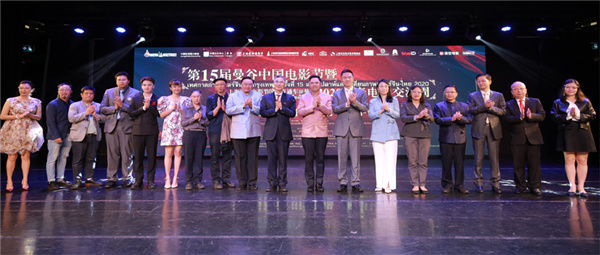 |
The 15th Chinese Film Festival in Bangkok and the 2020 China-Thailand Film Exchange Week opens at the China Cultural Center in Bangkok on Oct 25, 2020. [Photo provided to Chinaculture.org] |
On Oct 25, the opening ceremony of the 15th Chinese Film Festival in Bangkok and the 2020 China-Thailand Film Exchange Week was held at the China Cultural Center in Bangkok. The event was hosted by the China Cultural Center in Bangkok and received strong support from the Chinese Embassy in Thailand and the Thai Ministry of Culture.
The COVID-19 pandemic doesn't impede the enthusiasm for cultural exchange between China and Thailand. This film festival uses live broadcast to present the opening ceremony and host the "China-Thailand Film Exchange and Cooperation Online Seminar". During the film festival, audiences can use the online platform of the China Cultural Center in Bangkok to watch films online, which greatly increases the global reach of the festival.
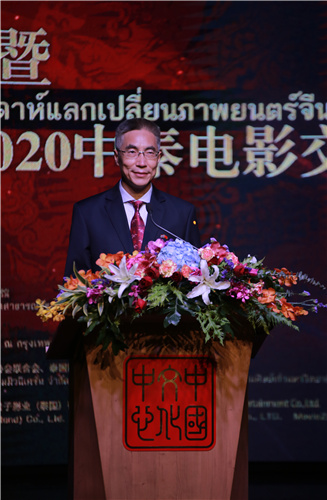 |
Gu Hongxing, director of the China Cultural Center in Bangkok and China Tourism Office in Bangkok, speaks at the opening ceremony. [Photo provided to Chinaculture.org] |
Gu Hongxing, director of Bangkok's China Cultural Center and China Tourism Office, said film can not only introduce one's national culture, but also reflect unique social landscapes. Film has become an important part of cultural exchange between countries and enhance mutual understanding among people around the world.
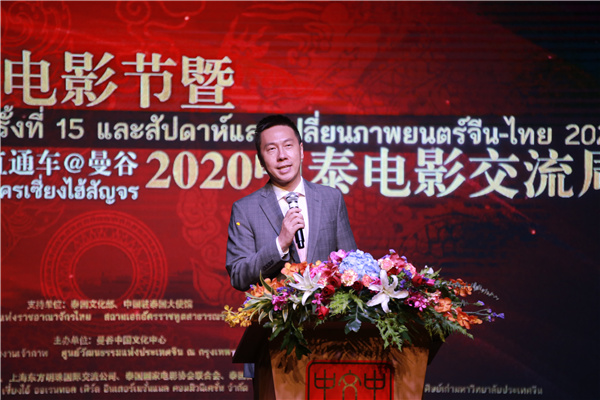 |
Yang Xin, Chargé d'affaires of the Chinese Embassy in Thailand, speaks at the opening ceremony. [Photo provided to Chinaculture.org] |
Yang Xin, Chargé d'affaires of the Chinese Embassy in Thailand, said since the establishment of diplomatic relations between China and Thailand 45 years ago, the mutual trust between the two countries has continued to deepen, economic and trade cooperation has expanded, cultural exchanges have become closer, and all-around cooperation has achieved fruitful results. Both China and Thailand have a vast film market. As a traditional project of cultural exchanges between China and Thailand, the Bangkok Chinese Film Festival has laid a solid foundation for film cooperation between the two countries for 15 years and will add new drive to the promotion of cultural exchanges and cooperation between China and Thailand.
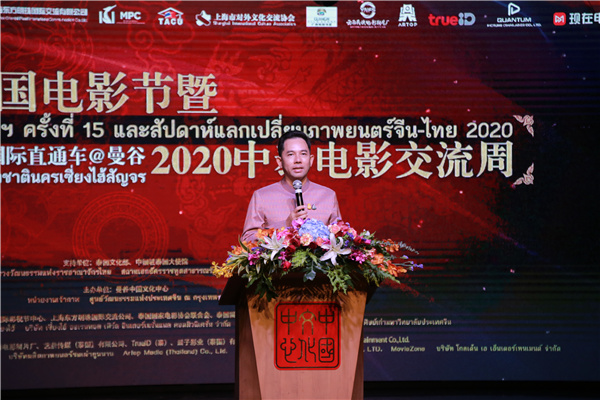 |
Itthiphol Kunplome, Thailand's minister of culture, speaks at the opening ceremony. [Photo provided to Chinaculture.org] |
Thailand's Minister of Culture Itthiphol Kunplome said in his speech the governments and people of Thailand and China have been in constant exchange. Cooperation in various fields has developed steadily, and the film festival is another important event to further promote cultural exchanges between the two countries. The people of the two countries can promote their understanding of the cultures of both sides through films, and promote friendly relations and cooperation in other perspectives.